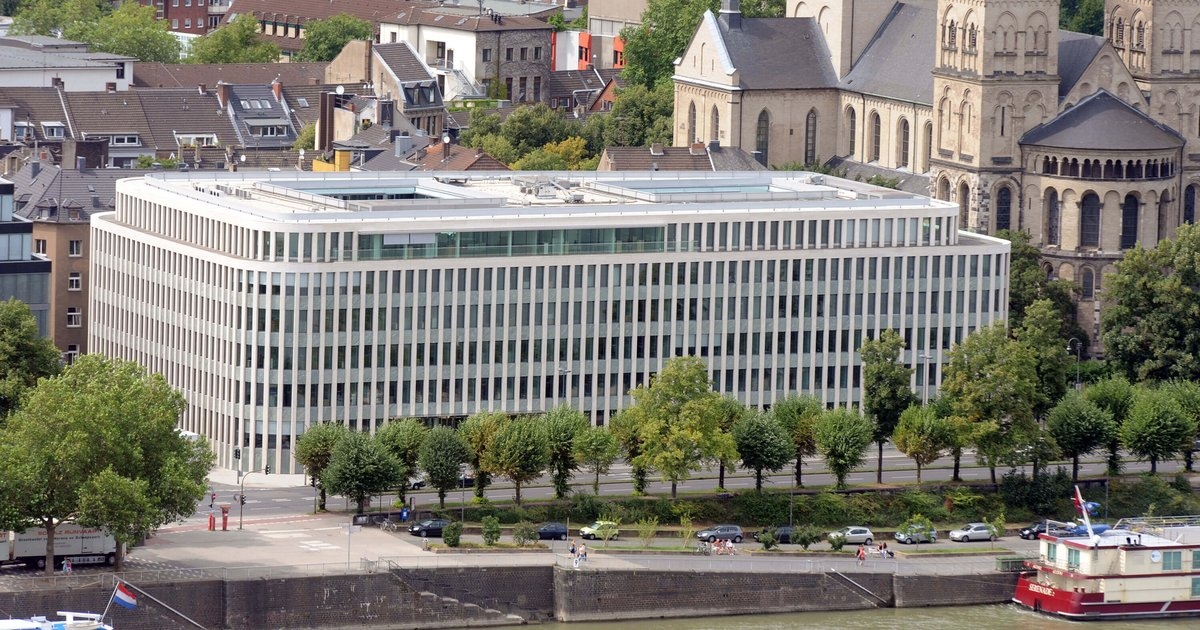RWE and Heidelberg Materials | Pakistani farmers demand compensation
Those who cause damage must pay for it – that's how German civil law works. Now, this principle is to be applied to the consequences of climate change. This is what 43 farmers from the Sindh province, which was particularly hard hit by the 2022 floods in Pakistan, are demanding. On Tuesday of this week, they sent a letter to the energy companies RWE and Heidelberg Materials to assert their claim for damages.
“This concerns economic damage caused by crop losses on their own land,” explains Hamburg-based environmental lawyer Roda Verheyen, who represents the Pakistanis. They estimate their total damages at around one million euros. The letter states that the companies should acknowledge their responsibility and contribute appropriately to the costs. If they refuse, a lawsuit will be filed in civil court in December.
"How can it be fair that we pay the price for a climate crisis we did not cause, while large corporations in the global north continue to profit?"
Abdul Hafeez Khoso, farmer from Pakistan
In the summer of 2022, Pakistan was struck by a particularly devastating flood. An extreme heat wave in the spring was followed by unusually heavy monsoon rains that lasted for months and caused widespread damage. At least 1,700 people died, and 33 million were left homeless. The floods destroyed houses and bridges and devastated crops. At times, a third of the country was underwater. Hunger and infectious diseases spread. The Pakistani government estimates the total economic damage at US$30 billion.
“It was a national tragedy,” says Shaikh Tanveer Ahmed of the Pakistani aid organization Hands Welfare Foundation. The fact that the victims are now demanding compensation has nothing to do with charity, but with justice. After all, the extreme downpours were intensified by climate change, to which Pakistan has contributed very little.
Among the applicants is Abdul Hafeez Khoso, a 42-year-old farmer from Sindh province in southern Pakistan, where many areas remained flooded for over a year after the disaster. The flood devastated his fields, and he lost several rice and wheat harvests. He, too, says: "How can it be just that we pay the price for a climate crisis we didn't cause, while large corporations in the Global North continue to profit? Those who cause damage must also pay for it."
Two of Germany's largest CO2 emitters are to be held accountable. RWE, one of Europe's largest electricity producers, is attributed at least 0.68 percent of global emissions , while Heidelberg Materials, one of the world's largest cement manufacturers, is attributed 0.12 percent of CO2 emissions – both since 1965. "RWE and Heidelberg Materials have been aware of the consequences of their emissions for people and the environment for decades. Nevertheless, they have refused to take appropriate action," says Miriam Saage-Maaß, who is involved in the case for the human rights organization European Center for Constitutional and Human Rights (ECCHR). The companies violated their duty of care, as lawyer Verheyen puts it in legal terms. "They should have taken reasonable mitigation measures." Their failure to do so constitutes a breach of duty and a "tort." This is the basis for the claim for damages.
The claimants believe they have a good chance of success. Firstly, attribution studies demonstrate that climate change significantly exacerbated and increased the likelihood of the 2022 floods in Pakistan. This establishes a causal link, which is legally important. Secondly, the claim for damages is linked to proceedings before the Higher Regional Court of Hamm in May 2025. The lawsuit, brought by Peruvian mountain farmer Saúl Luciano Lliuya against RWE , which dragged on for almost ten years, did not concern damages that had already occurred, but rather those that could occur in the future. Specifically, the potential damages would arise if climate change continues to melt the glaciers in the Andes, thereby destroying Lliuya's livelihood. The plaintiff demanded that RWE contribute to protective measures, specifically the construction of a dam to prevent the outburst of a glacial lake.
The court dismissed the lawsuit, finding no concrete danger to Lliuya's property and assessing the flood risk as very low. However, the Higher Regional Court of Hamm simultaneously clarified that it is fundamentally possible to hold major emitters liable for climate-related damages abroad. Environmental organizations and climate groups celebrated the ruling at the time as a "historic landmark decision." Environmental lawyer Verheyen, who also represented Lliuya, subsequently stated: "This ruling is a milestone and will give momentum to climate lawsuits against fossil fuel companies and thus to the global shift away from fossil fuels."
This could now be the case: It is not about a future risk that can be assessed one way or another, but about damages that have already occurred, for which precisely calculable compensation is being claimed.
The "nd.Genossenschaft" belongs to its readers and authors. It is they who, through their contributions, make our journalism accessible to everyone: We are not backed by a media conglomerate, a major advertiser, or a billionaire.
Thanks to the support of our community, we can:
→ Report independently and critically → Shine a light on topics that otherwise remain in the shadows → Give a platform to voices that are often silenced → Counter disinformation with facts
→ Strengthen and deepen left-wing perspectives
nd-aktuell




